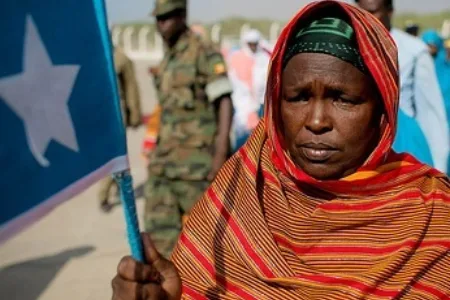Women, peace and security in post-conflict and peacebuilding contexts

Post-conflict peacebuilding processes present major opportunities for advancing women’s rights and gender equality. But a gender perspective needs to be more effectively operationalised in post-conflict institutions and peacebuilding processes. A key challenge for the United Nations (UN) and its member states in progressing the women, peace and security agenda in post-conflict settings is bridging the gap between the interdependent political and economic security pillars of peacebuilding. Well-intentioned gender mainstreaming objectives are often undermined by the post-conflict political economy context, which reinforces structural gender inequalities between men and women. This is a major setback for peace, reconciliation and the long-term recovery of societies. Mainstreaming gender equality and women’s empowerment in post-conflict peacebuilding requires an integrated framework for action. This framework needs to address institutional and structural barriers to equality. This policy brief suggests concrete ways to do this, building on the UN secretary-general’s 2010 seven-point plan on women’s participation in peacebuilding. Recommendations target measures to increase women’s representation in post-conflict governance, improve government responsiveness to sexual and gender-based violence against women, secure women’s economic and social rights, design reparations for women’s economic empowerment, incorporate gender budgeting in all post-conflict financing arrangements, and prioritise gender equality in the security sector.